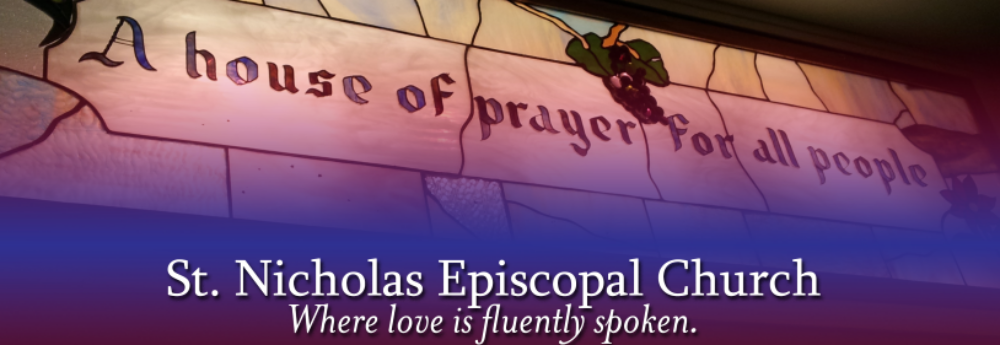Acts 2:1-21 or Ezekiel 37:1-14
Psalm 104: 25-35,37
Romans 8:22-27 or Acts 2:1-21
John 15:26-27; 16:4b-15
Category Archives: Episcopal
Other Blogs: Speaking to the Soul | Joyful Noise
This post from Episcopal Cafe struck the right note:
Have you ever just kicked back and thought about the beauty of the gathered voices on any given Sunday in your home parish, from the shrieking child to the most elderly patriarch? When I think back to the death of one friend in my parish and the relocation of another friend to another state, I recall acutely missing the sound of their voices among the baseline of the gathered voices–yet at the same time feeling the baseline of our typical Sunday singing simultaneously carrying me through my grief. These days, I swear I hear those people in the background now and then. Sometimes, I swear I hear the heart voices of the people whom I’ve never heard sing an actual note. I think about the times I’ve heard the voices of others be tearful, and the times my own voice has cracked in awe of the beauty filling my ears. I think about the voices I’ve heard grow up in the parish, from little thready sing-song child voices to voices beginning to burst open to reveal the adults they are becoming. Somehow the mystery of all of it–the harmony and the dis-harmony, singing in tandem–works out to something bordering on saintly.
Link: Speaking to the Soul
Other Blogs: The Power Of Song
Music is a big part of worship at St Nicholas, and it’s been a big part of the experience at St Bede’s as well.
At St Nick’s, we often sing or chant psalms; St Bede’s uses a book of praise songs, and both communities are familiar with various hymns.
Here’s an item from Huffington Post on the subject:
So, I feel bad for the biblical psalms. In Hebrew, their home language, the collection is called tehillim — “songs of praise.” This ups the mystery ante. After all, the book is dominated by complaint. Evocative expressions of pain and suffering — all kinds and on all levels are far more common than happier sentiments. Yet somehow, all together, they are “Praise Songs.” And how poignant that the book’s Greek title, Psalms, comes from a word that may refer as much to a stringed instrument as the “songs” it accompanied.
Now, you may call me sacrilegious, but as much as I wish we knew the full music of those biblical texts, I do not believe that they alone possess sanctifying power. I do not believe that the sacred is bound by text or that the divine is circumscribed by religion. Holiness happens in the oddest places and may be carried along by something as profound, as singular and transitory, as a song.
Link: The Power of Music: Holiness Hitches a Ride – The Huffington Post
